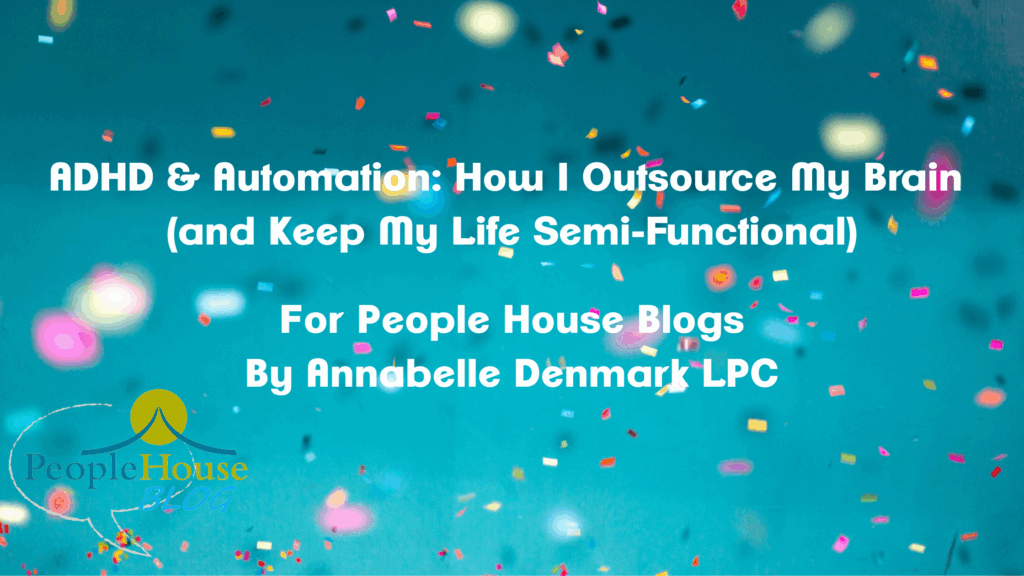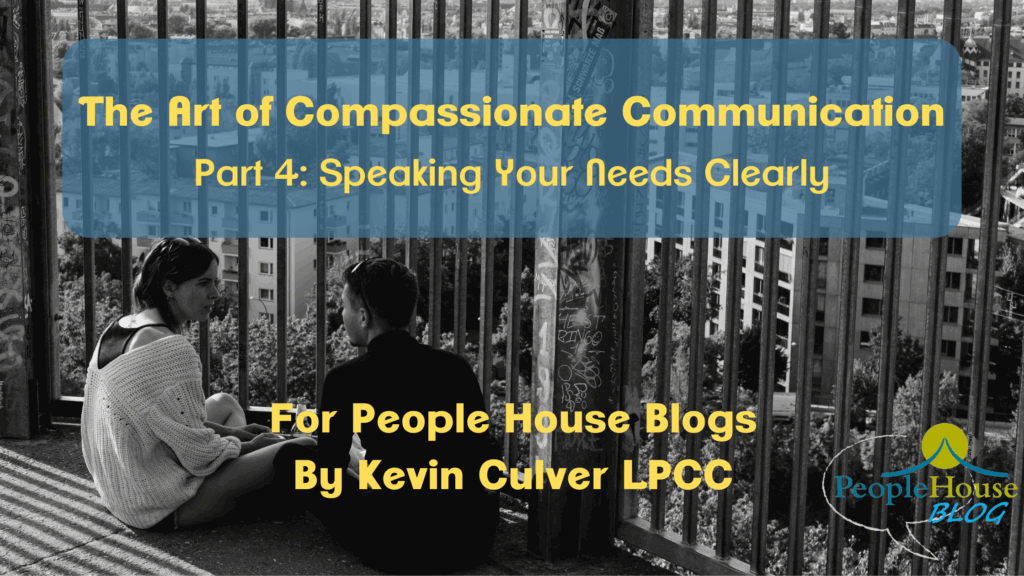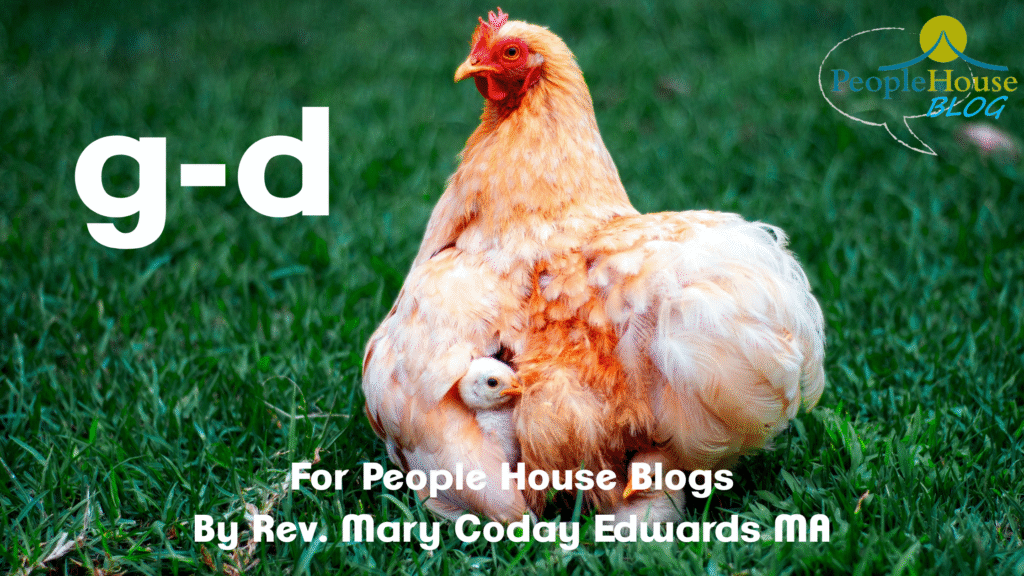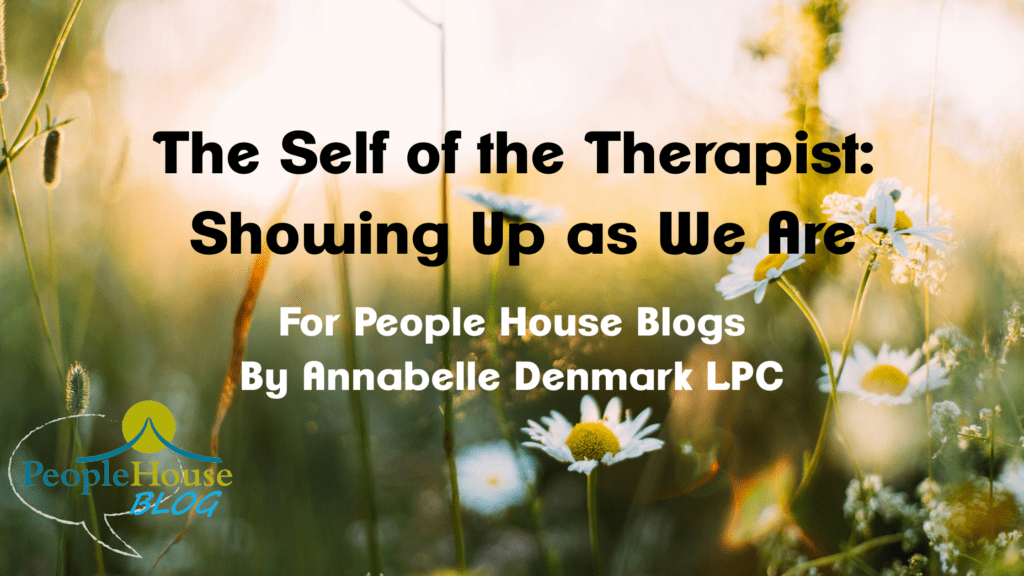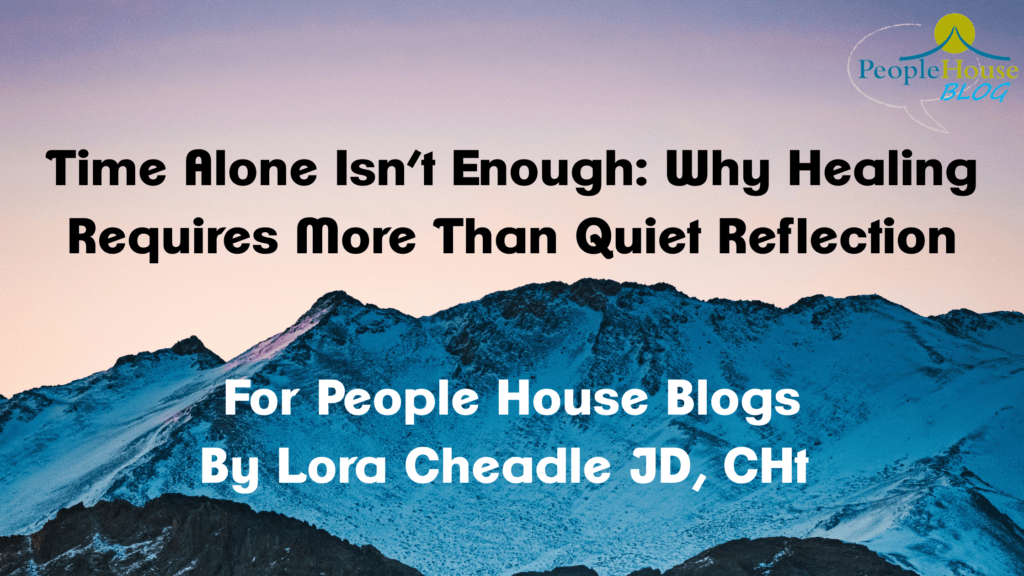The Happiness Quotient II By Laura Zwisler, LPC
Happiness, as far as I can tell, has two parts to it, and modern humans always seem to focus on the wrong part. The bigger portion is made up of fulfillment. These are the tasks that are dressed as work, but feed our souls. Any act of creation is fulfillment. Cooking. Gardening. Exercising. Writing. Scuba…
Read MoreADHD & Automation: How I Outsource My Brain (and Keep My Life Semi-Functional) || By Annabelle Denmark LPC
Living with ADHD means forgetting everything—even the stuff we want to remember. Bills. Food in the microwave. Watering plants. Closing the fridge. Basic life things.So I don’t fight it.I automate it.Here’s how I’ve set up my life to run without me having to remember every single thing: Bills? What Bills? I don’t even try to…
Read MoreThe Art of Compassionate Communication – Part 4: Speaking Your Needs Clearly || By Kevin Culver LPCC
This blog series has examined how to build deeper understanding and connection in relationships using Dr. Marshall Rosenberg’s framework of Nonviolent Communication (NVC). In the last post, we looked at the importance of identifying and expressing our core needs (previous blog link here). In this final blog, we’ll explore the last component of NVC: learning…
Read MoreFirst, Trust Your Experience || By Beth Hinnen, Certified Mindfulness and Meditation Teacher
Once, at a conference, I played a game. Everyone was told to take a slip of paper from a basket, read it and then stand in different areas of the room depending on how many “F”s we saw. A small group went over to less than 5, a much larger group went to 6, another…
Read Moreg-d || By Rev. Mary Coday Edwards MA
How many stained-glass windows have you seen depicting God as a mother hen gathering up her chicks under her wings? (Matthew 23:37). Or how about Isaiah 66:7-9, which compares God to a woman giving birth? I don’t think that image will ever be a stained-glass window: “Eww…” the patriarchy would murmur: “All that blood!” and…
Read More90 Days to Reclaim Your Energy, Clarity & Joy: Your Comeback Summer Starts Now! || By Lora Cheadle JD, CHt
When life knocks the wind out of you—whether through betrayal, burnout, loss, or just sheer exhaustion—it’s easy to feel like you’ve lost your spark and will never feel like yourself again. What if this summer wasn’t about pushing harder, accepting that you’re suddenly “just too old and tired” to feel good, or pretending everything’s fine…What…
Read MoreThe Self of the Therapist: Showing Up as We Are || By Annabelle Denmark
In the therapy room, we often talk about authenticity—encouraging clients to show up as their full selves. But what about us, the therapists? What does it mean to bring our whole selves into work? For me, the answer lies in the intersection of grit, roots, and a refusal to pretend I’m someone I’m not. I…
Read MoreThe Art of Compassionate Communication – Part 3: Identifying Needs || By Kevin Culver LPCC
This series of blogs is focused on how we can improve communication in our relationships, both professionally and personally, specifically by using Rosenberg’s framework of nonviolent communication (NVC). In the last blog, we identified the importance of objectively observing our experience and circumstances and then connecting it very specifically to how we feel (previous blog…
Read MoreFree to Respond || By Beth Hinnen, Certified Mindfulness and Meditation Teacher
One of the most pivotal points on my spiritual path came rather early, as I was just beginning to observe the mind and realize how much it worked on autopilot. Something would happen and instantly my mind would react, with criticism, judgement, dismissal, dismay, and a host of other reactions that seemed so normal. If…
Read MoreTime Alone Isn’t Enough: Why Healing Requires More Than Quiet Reflection || By Lora Cheadle JD, CHt
There’s something sacred about solitude. After any emotional upheaval—especially something as earth-shattering as betrayal—it’s natural to retreat. Time alone can offer a welcome pause from the chaos. It allows us to breathe, reflect, and reconnect with ourselves in small, quiet ways. But here’s the truth: time alone doesn’t heal all wounds. Betrayal trauma isn’t just…
Read More

